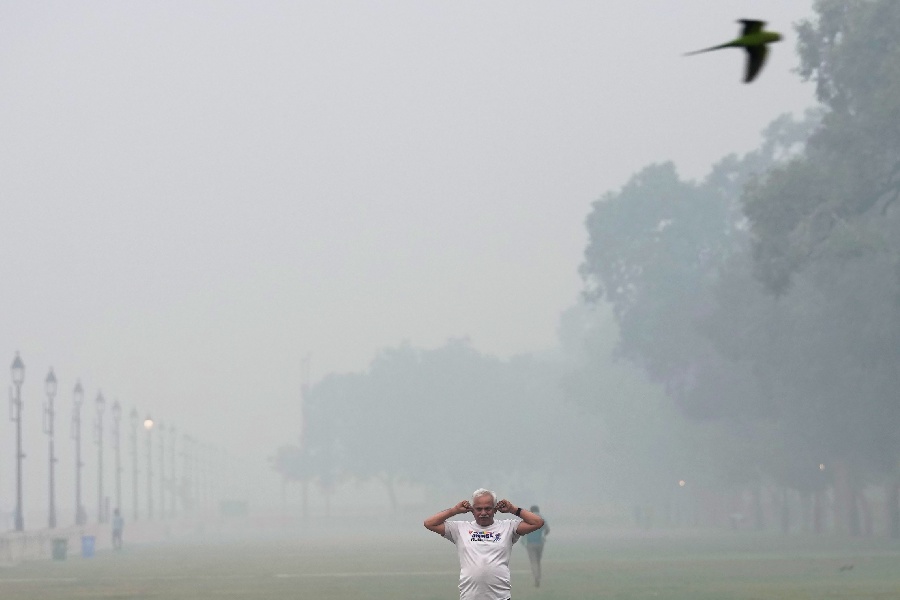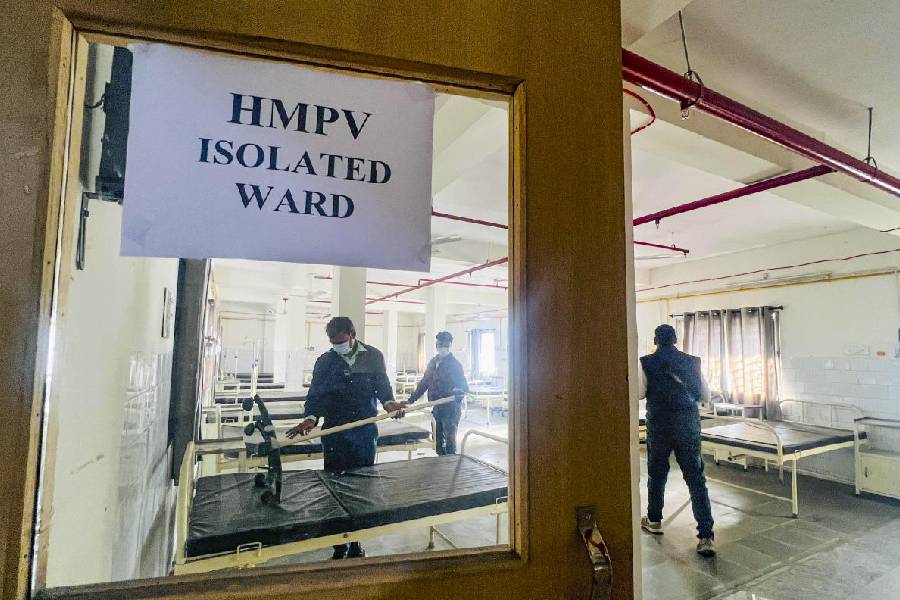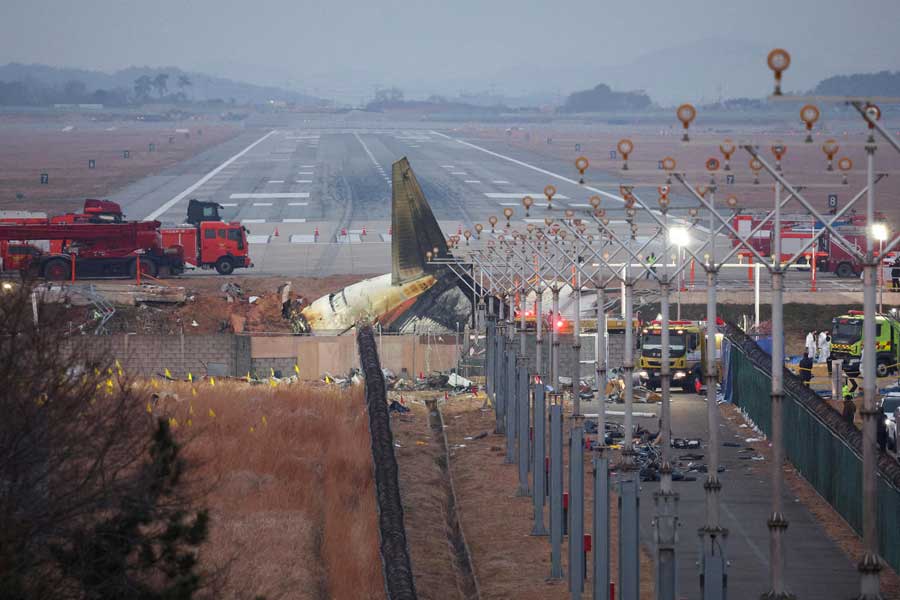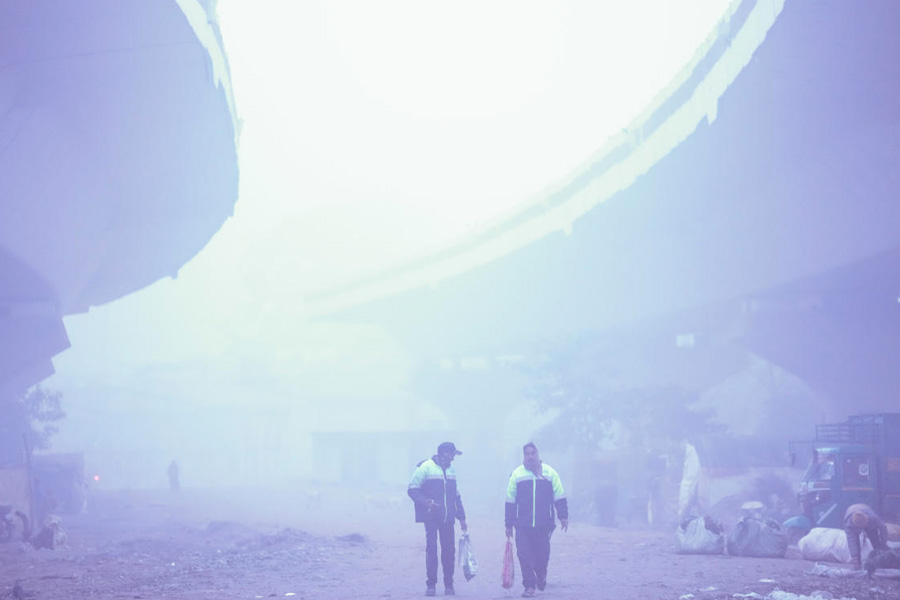To curb the rising pollution in the national capital, the Delhi Fire Services has joined hands with the Delhi government to spray water at several hotspots, officials said on Sunday.
"A total of 12 fire engines have been pressed into service to curb pollution. These fire tenders have already started sprinkling water at different locations which have been identified as hotspots," Atul Garg, Director of Delhi Fire Services, said.
Garg said he was hopeful that sprinkling water might be able to bring some respite to citizens.
A toxic haze lingered over Delhi for the sixth consecutive day on Sunday as pollution levels once again reached the 'severe plus category' due to unfavourable wind conditions, particularly calm winds during the night.
The air quality index deteriorated from 415 at 4 pm on Saturday to 460 at 7 am on Sunday, which was later recorded at 461 at 11 am, according to the Central Pollution Control Board (CPCB).
Considering the high pollution levels, Delhi Education Minister Atishi on Sunday announced that primary schools in Delhi will stay closed till November 10.
Taking to social media platform 'X' Atishi wrote, “As pollution levels continue to remain high, primary schools in Delhi will stay closed till November 10. For Grade 6-12, schools are being given the option of shifting to online classes.” Earlier, Chief Minister Arvind Kejriwal had announced on November 2 that all government and private primary schools in Delhi will remain closed on November 3 and November 4, in view of the rising pollution levels.
Under the Centre's air pollution control plan, all emergency measures, including a ban on polluting trucks, commercial four-wheelers, and all types of construction, are mandated to be initiated and enforced in the National Capital Region if the AQI crosses the 450-mark.
An AQI between 0-50 is considered 'good', 51-100 'satisfactory', 101-200 'moderate', 201-300 'poor', 301-400 'very poor' and 401-450 'severe'. An AQI above 450 falls in the 'severe plus' category.
Except for the headline, this story has not been edited by The Telegraph Online staff and has been published from a syndicated feed.












